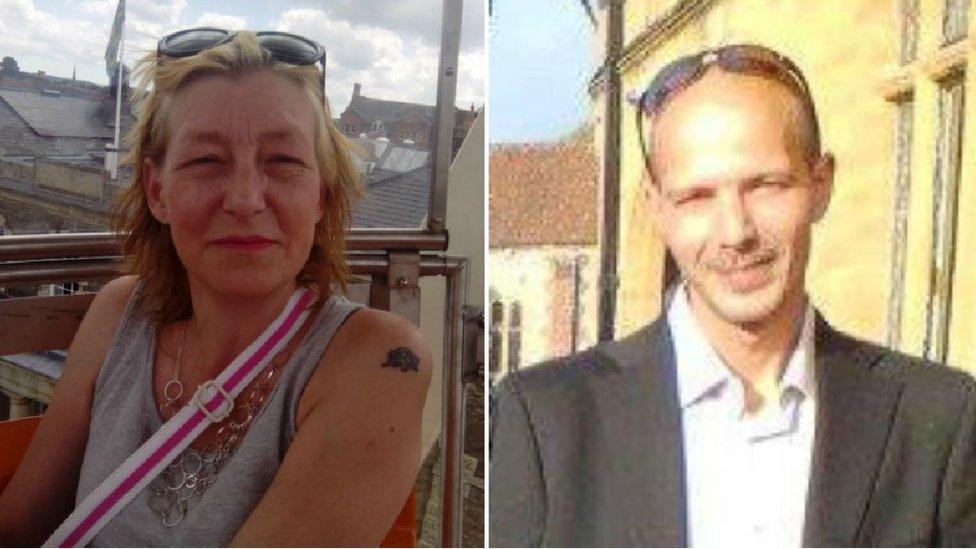Amesbury poisoning: Couple 'handled contaminated item'
- Published
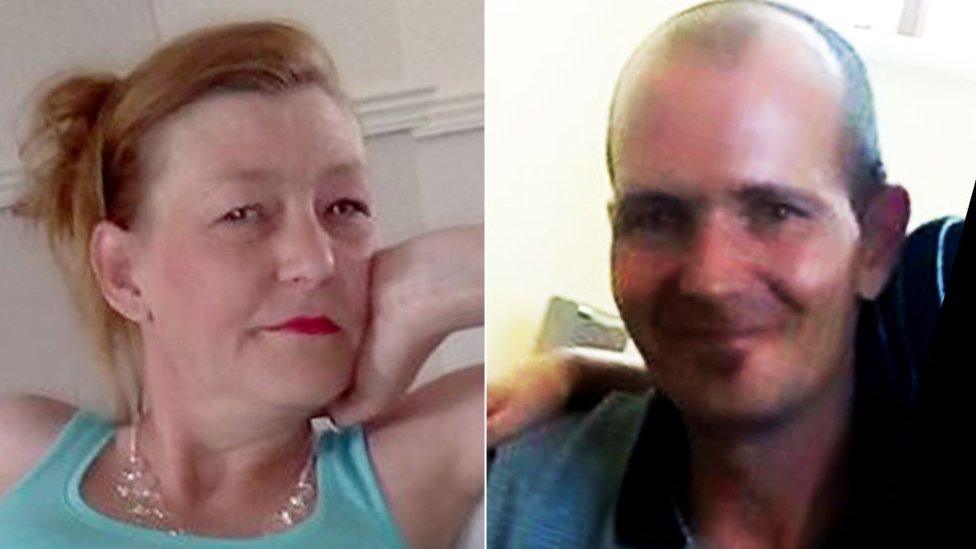
The couple, Dawn Sturgess and Charlie Rowley, fell ill on Saturday
The couple poisoned by Novichok were exposed to the substance after handling a contaminated item, police say.
Charlie Rowley, 45, and Dawn Sturgess, 44, collapsed at a flat in Amesbury, Wiltshire, on Saturday and remain critically ill.
Home Secretary Sajid Javid said the nerve agent was the same as that used on ex-Russian spy Sergei Skripal and his daughter in March.
Russia said Theresa May's government was subjecting them "to hell".
Mr Javid accused Russia of using Britain as a "dumping ground for poison" after the second incident involving the nerve agent.
Footage shows Ms Sturgess in Salisbury days before her collapse
But a Russian Embassy spokesman said all allegations of the country's involvement were "merely speculative".
The Met said there were around 100 detectives from the Counter Terrorism Network working alongside Wiltshire Police on the "major incident".
Salisbury District Hospital's chief executive Cara Charles-Barks said the couple are "extremely unwell" and remain in a critical condition.
BBC security correspondent Gordon Corera said that because the highest concentration of Novichok was found on the couple's hands, police believe the item they handled could be a container or receptacle that was used to carry the nerve agent.
He said the most likely hypothesis was the Novichok was left over from an item discarded after the attack on the Skripals.
Toxicologist Prof Alastair Hay said it would be possible for Novichok to still be dangerous four months after first use.
Metropolitan Police Assistant Commissioner Neil Basu said there was nothing in the couple's background to suggest the pair had been targeted.
The BBC's home affairs correspondent June Kelly said it has been suggested the item "could be a vial or syringe because of the couple's lifestyle".
Chemical weapons expert Richard Guthrie said it was possible that the couple came across the Novichok after it had been disposed of "in a haphazard way".
Debbie Stark, south west deputy director from Public Health England said the risk to the public of further poisoning incidents "remains low".
Police have set up a helpline, external for anyone who needs further advice: 0800 092 0410 or 0207 158 0124.
Sajid Javid calls on Russia to explain "exactly what has gone on" following Amesbury incident
In a statement to MPs, Mr Javid said: "It is now time that the Russian state comes forward and explains exactly what has gone on."
He said the "strong working assumption" was that the couple came into contact with Novichok in a location which had not been cleaned up following the Skripal poisoning in nearby Salisbury.
"It is completely unacceptable for our people to be either deliberate or accidental targets, or for our streets, our parks, our towns, to be dumping grounds for poison," he added.
He said he could not rule out the possibility that the Novichok found in Amesbury was from the same batch used in the Salisbury attack and that scientists would be "looking into that".
'Muddy the waters'
Earlier, Mrs May said it was "deeply disturbing" to see two more people exposed to Novichok in the UK, and the police would leave "no stone unturned in their investigation".
Shadow home secretary Diane Abbott said British streets must not be allowed to become "killing fields for state actors".
But the spokesman for the Russian Embassy said the government had yet to contact them about the incident
He added: "Instead of genuine co-operation, London is doing everything possible to muddy the waters, to confuse and frighten its own citizens.
"One can only guess what the reasons behind such a line of behaviour are."
Sam Hobson, friend of Charlie Rowley: "His eyes were red… he was sweating and dribbling"
Ms Sturgess' father Stephen, 65, told The Times the family found out from TV news that she may have been poisoned by a nerve agent.
"We heard from the hospital on Sunday, and we gave them Dawn's GP details but we didn't hear anything from the police.
"We know as much as the next person in the street. We actually called the police station for information."
Charlie Rowley's older brother Matthew said security measures meant he couldn't get through to the hospital despite ringing several times.
"He's my younger brother, I love him to bits," he said.
"I don't want anything to happen to him, and yet it has. It's heartbreaking."
Natalie Smyth from Amesbury said: "I'm furious that it took four days for them [the police] to even mention it could have been Novichok.
"Were they lying to us about it being drug related?"
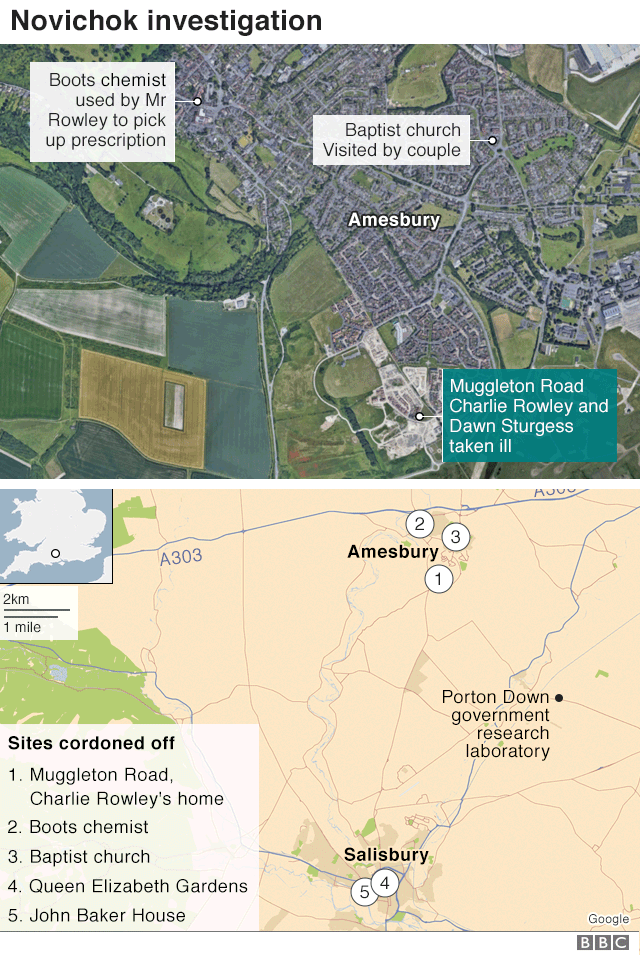
Although the risk to the public remains low, Public Health England (PHE) have advised those who were in the areas from 22:00 BST on Friday and which are now cordoned off to wash their clothes and wipe down personal items.
Clothing that cannot be washed should be double-bagged and owners should await "further instructions".
Debbie Stark from PHE said areas of Salisbury that have already been cleaned as part of the Skripal incident - such as the Maltings shopping centre - are safe.
Residents at John Baker House, the supported housing where Ms Sturgess is believed to have been staying, have been evacuated and told they will have to be rehoused.
The police warned members of the public against picking up unfamiliar items.
Sites in Amesbury and Salisbury believed to have been visited by the couple before they fell ill have been cordoned off as a precaution, including a church, park and chemist.

On the scene: How Salisbury has reacted
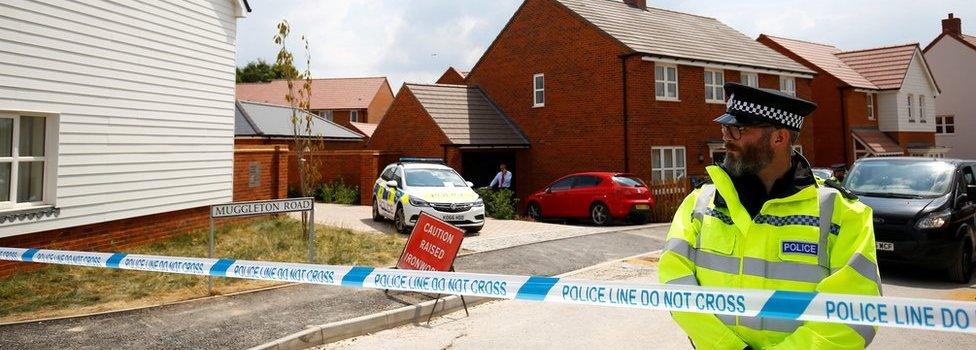
The revelation that two more people have been exposed to the nerve agent Novichock has shocked people in Salisbury.
Residents have experienced months of disruption and anxiety since the poisoning of Sergei Skripal and his daughter Yulia in March.
Now many are wondering whether, despite a clean-up operation, their city is safe?

There have been accusations from Russia that the UK is persecuting the country and failing to co-operate.
The Skripal case is still shrouded in darkness, says Russia spokeswoman Maria Zakharova, as she called on Theresa May's government to stop the "dirty" games.
She said Russia has sent "dozens of offers of co-operation" and she was confident London would have to apologise to her country.
Allow X content?
This article contains content provided by X. We ask for your permission before anything is loaded, as they may be using cookies and other technologies. You may want to read X’s cookie policy, external and privacy policy, external before accepting. To view this content choose ‘accept and continue’.
- Published4 July 2018
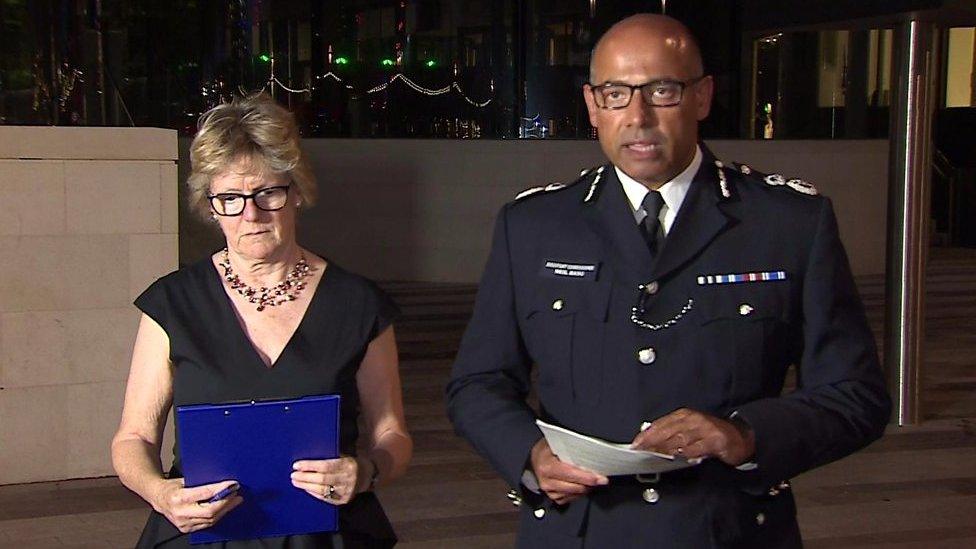
- Published2 September 2020
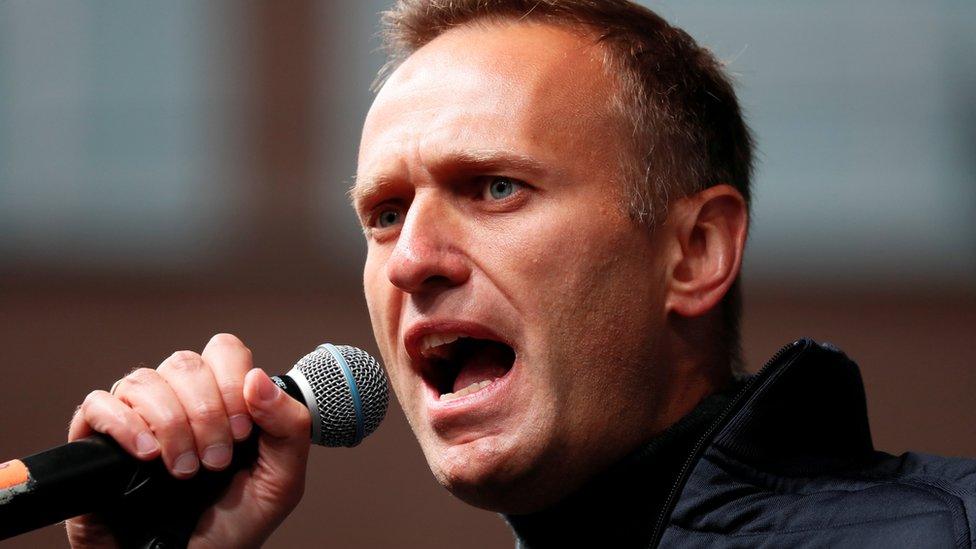
- Published27 September 2018
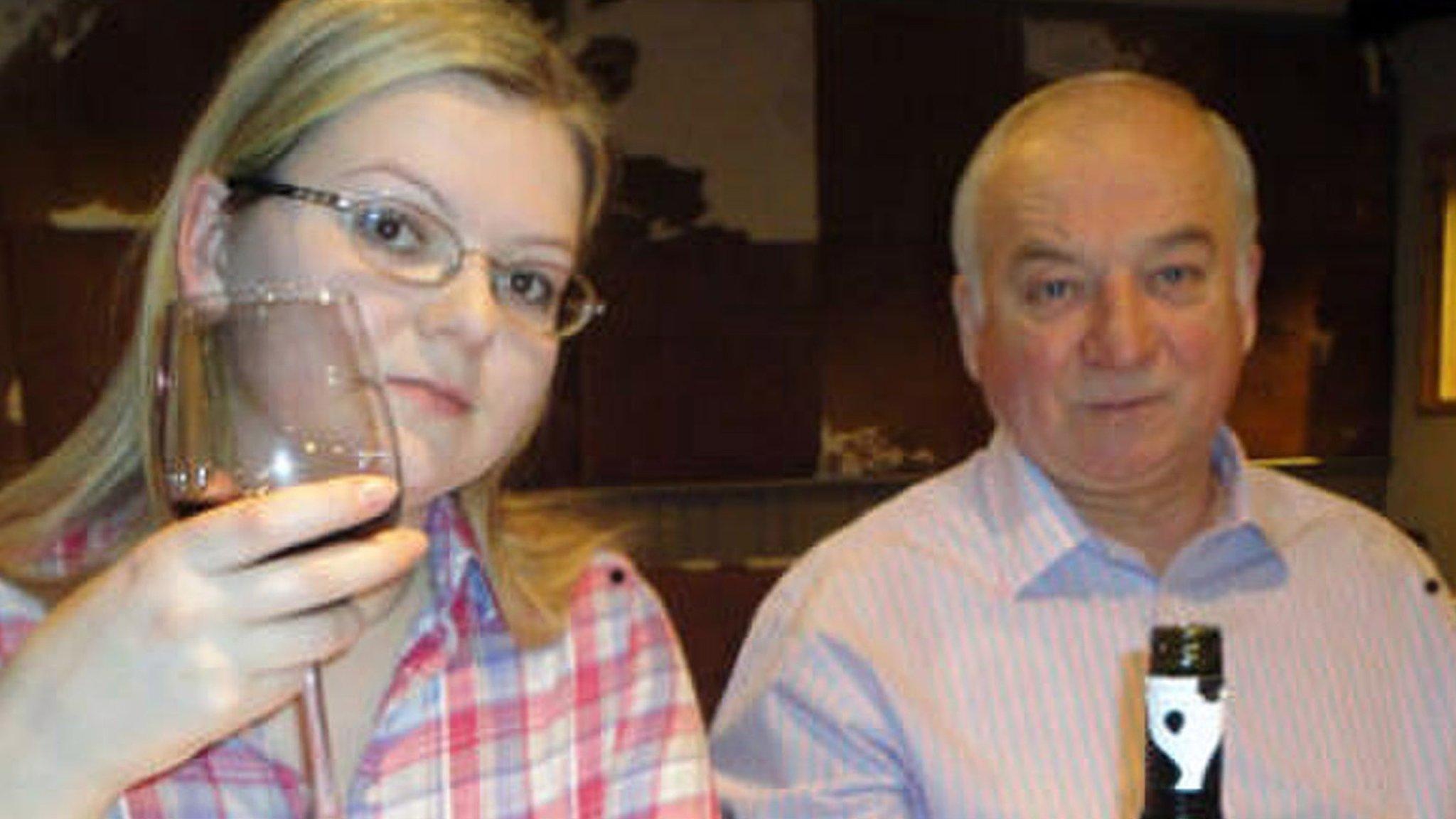
- Published2 August 2018
